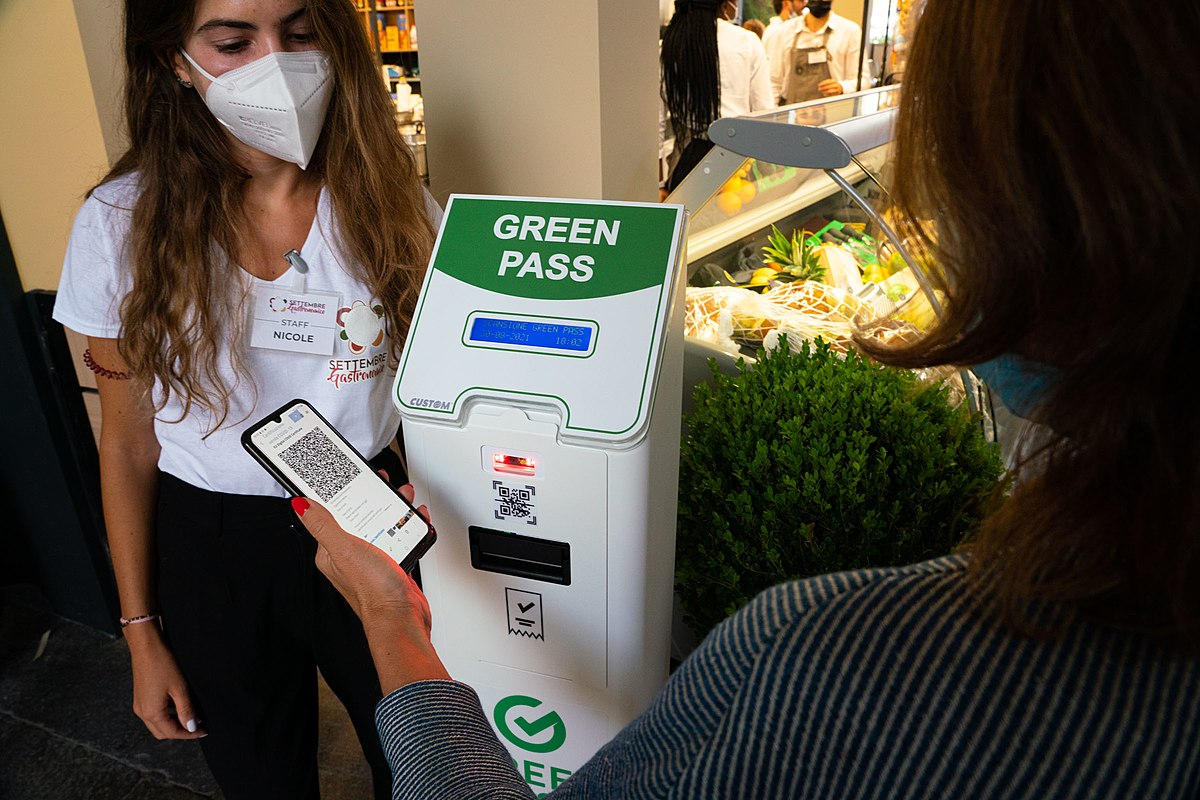People who have been double-jabbed or are medically exempt can access My Vaccine Pass from today.
Covid-19 Response Minister Chris Hipkins has asked people to delay applying by a couple of days as the system is under pressure. The pass will be needed to access events, hospitality and close-contact businesses once the new traffic-light system is underway.
The SMC asked experts to comment.
Dr Andrew Chen, Research Fellow, Koi Tū – Centre for Informed Futures, University of Auckland, comments:
“Vaccine passes will be available for people to generate and download later today. The easiest way to think about how these work is to compare them to drivers’ licences.
“When you apply for a drivers licence, you have to meet certain requirements (like passing a test that proves you can operate a vehicle safely), and then it’s valid for a certain time period before you have to renew it. When you are holding the licence, it means you are legally allowed to operate a vehicle.
“The vaccine pass means that at the time you apply for it, you meet the requirements for being considered vaccinated, and then the pass will be valid for six months from then. When you are holding the pass, it means you are legally allowed to enter premises that require a vaccine pass under the COVID Protection Framework (traffic-light system).
“The vaccine pass has your name, date of birth, and a date upon which the vaccine pass expires printed on it. It also has a QR code, which has the same information encrypted with a private key held by the Ministry of Health. This allows the Ministry of Health to prove that they generated the QR code, and prevents anyone else from being able to generate a valid QR code, which mitigates fraud and fake passes.
“If you have been able to get access to My COVID Record in the past, then the button to generate a vaccine pass will be available on the same website. It’s just a few clicks and a vaccine pass will be e-mailed to you as a PDF. Importantly, there will be separate documents for domestic passes and international certificates, as these are designed to meet different requirements and standards. Once you receive the pass or certificate that you need, you can either print it out, or you can store it on your phone (either in a digital wallet or just as a photo).
“When you want to enter a restricted venue, you should be asked to show the pass and some form of ID. A “verifier” app will scan the QR code on the pass to confirm that it is legitimate, and then the person will check your ID to verify that you are the person whose details are on the pass. Not all venues will do ID checks though, which is the same as driving around with someone else’s driver’s licence – you might get away with it, but you might not. The official verifier app is not yet available (but is expected in the next week or so), however some people have built third-party verifier apps already.
“Crucially, once you have a vaccine pass, please don’t share it via social media. While the risk is very low, there is the possibility that someone with the same or similar name to you could try to use your pass at venues that don’t check ID. It also makes it more likely that those who are very motivated to defraud the system (e.g. anti-vaxxers) may use your information to circumvent the system.
“The government is releasing the passes ahead of moving towards the traffic-light system so that there is plenty of time for people to iron out the wrinkles before the passes are actually needed. Some people will face difficulty getting into My COVID Record because they don’t have the required identification documents, and might need to request a new birth certificate or go through a different process. There is also a phone number that people can call (0800 222 478) if they don’t have access to technology or are struggling to get through to My COVID Record, and they can request a pass to be posted to them.
“We are still waiting for further details about how the passes are expected to be used under the COVID Protection Framework, as the accompanying legislation has not yet been released, which is also where the vast majority of the ethical concerns might be. But we are reasonably confident that the technology side works and is safe to use.
“I think it is unfortunate that we are in a world that requires vaccine passes, but I also understand why we need them. The public health risk justifies the intrusion into our lives, and the passes have been designed with privacy in mind – even if they are not perfect at protecting privacy. My hope is that we can stop using them soon, and I call on the government to provide more certainty on the conditions where we can stop using the vaccine passes.”
Conflict of interest statement: “Andrew has had conversations with the Ministry of Health and Department of Prime Minister and Cabinet in an academic capacity to provide advice, but has no financial relationship.”
Professor Claire Breen, Faculty of Law, University of Waikato, comments:
“Vaccine certificates raise a number of legal questions around civil liberties and human rights, and will involve balancing various rights, such as the right to freedom of movement, the right to health, privacy, as well as the rights to equality and freedom from discrimination.
“Current border closures and restricted movements within the country show that these rights can be limited, but such restrictions must be justifiable. Equally, Te Tiriti o Waitangi must also inform such decisions so as to achieve equitable outcomes for Māori, in health and other areas that may be affected by the introduction of vaccine certificates.”
No conflict of interest declared.
